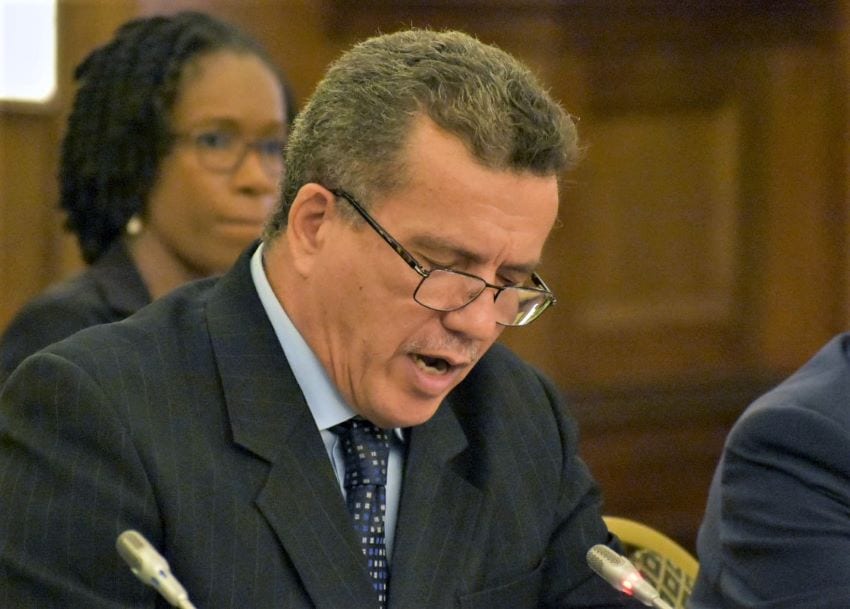
Even though our societies are facing economic crises and continuous social problems, the environment should be seen as our most important asset because Earth is the only home that humans have, and it provides air, food, and other needs.
At the opening of the Intersessional Forum for Ministers of Environment from Latin America and the Caribbean (LAC) earlier today at Hilton Barbados, United Nations Environment Programme (UNEP), Regional Director, Leo Heileman, in his remarks stressed that “the environment is the single most important mandate at this point in history”.
He noted that the severe weather events experienced within Latin America and the Caribbean, especially the most vulnerable of societies, make it clear that the mandate on the environment should be first and foremost on agenda at any high level meetings.
Mr. Heileman revealed that the Intergovernmental Science-Policy Platform on Biodiversity and Ecosystems Services states “that out of our nearly eight million species, we are going to lose about one million species unless we act to protect our ecosystems”.
He added our oceans are warming, acidifying and being depleted of fish, all the while filling up with waste, plastic and garbage, and the fires in the Amazon region and the devastation that Hurricane Dorian caused to Bahamas have made it more evident now than ever, how critical addressing environmental issues are and the need to build climate resilience.
“The way to protect our planet is by tackling these complex issues in an integrated manner, and by ensuring that we leave no-one behind…therefore, the environment is the platform that can enable multilateral action,” the UNEP Regional Director said.
The role of UNEP is to be the authoritative voice on the environment within the United Nations system and to ensure humanity prospers in harmony with the planet.
To do this, Mr. Heileman believes the world must view climate change, ecosystem and biodiversity loss and pollution not as separate issues but as one, because they are “closely interlinked and driven by the same forces”, and to negate these forces, UNEP is focusing on three transformations.
These three transformations are first to decarbonize economies, that is to rapidly transition to clean renewable energy; secondly to decouple and detoxify, which is to move to circular economy models; and thirdly to work with nature, not against it, for example large-scale afforestation which can deliver one-third of the cuts needed to meet the 1.5-degree centigrade target of the Paris Agreement.
Mr. Heileman hopes that the two-day forum will bear fruitful discussions and reiterate UNEP’s commitment to creating a stronger, more impactful and strategic regional voice on environmental issues.
He thanked the Government of Barbados for hosting the preparatory work meeting and for the hospitality shown to all delegates.
